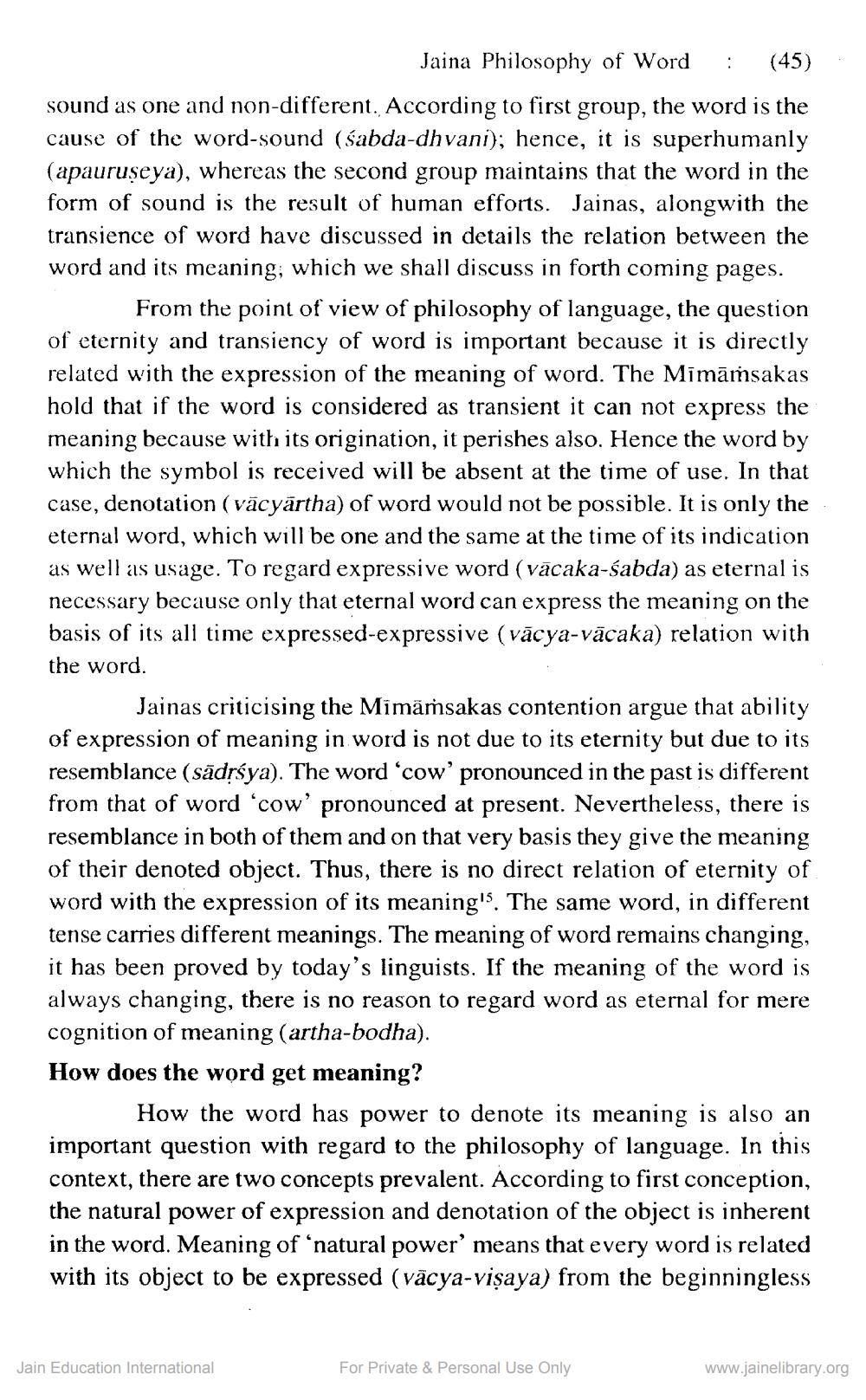________________
Jaina Philosophy of Word : (45) sound as one and non-different. According to first group, the word is the cause of the word-sound (sabda-dhvani); hence, it is superhumanly (apauruseya), whereas the second group maintains that the word in the form of sound is the result of human efforts. Jainas, alongwith the transience of word have discussed in details the relation between the word and its meaning; which we shall discuss in forth coming pages.
From the point of view of philosophy of language, the question of eternity and transiency of word is important because it is directly related with the expression of the meaning of word. The Mimāmsakas hold that if the word is considered as transient it can not express the meaning because with its origination, it perishes also. Hence the word by which the symbol is received will be absent at the time of use. In that case, denotation (vācyártha) of word would not be possible. It is only the eternal word, which will be one and the same at the time of its indication as well as usage. To regard expressive word (vācaka-sabda) as eternal is necessary because only that eternal word can express the meaning on the basis of its all time expressed-expressive (vācya-vācaka) relation with the word.
Jainas criticising the Mimāṁsakas contention argue that ability of expression of meaning in word is not due to its eternity but due to its resemblance (sādrsya). The word 'cow' pronounced in the past is different from that of word 'cow' pronounced at present. Nevertheless, there is resemblance in both of them and on that very basis they give the meaning of their denoted object. Thus, there is no direct relation of eternity of word with the expression of its meaning's. The same word, in different tense carries different meanings. The meaning of word remains changing, it has been proved by today's linguists. If the meaning of the word is always changing, there is no reason to regard word as eternal for mere cognition of meaning (artha-bodha). How does the word get meaning?
How the word has power to denote its meaning is also an important question with regard to the philosophy of language. In this context, there are two concepts prevalent. According to first conception, the natural power of expression and denotation of the object is inherent in the word. Meaning of ‘natural power' means that every word is related with its object to be expressed (vācya-visaya) from the beginningless
Jain Education International
For Private & Personal Use Only
www.jainelibrary.org




